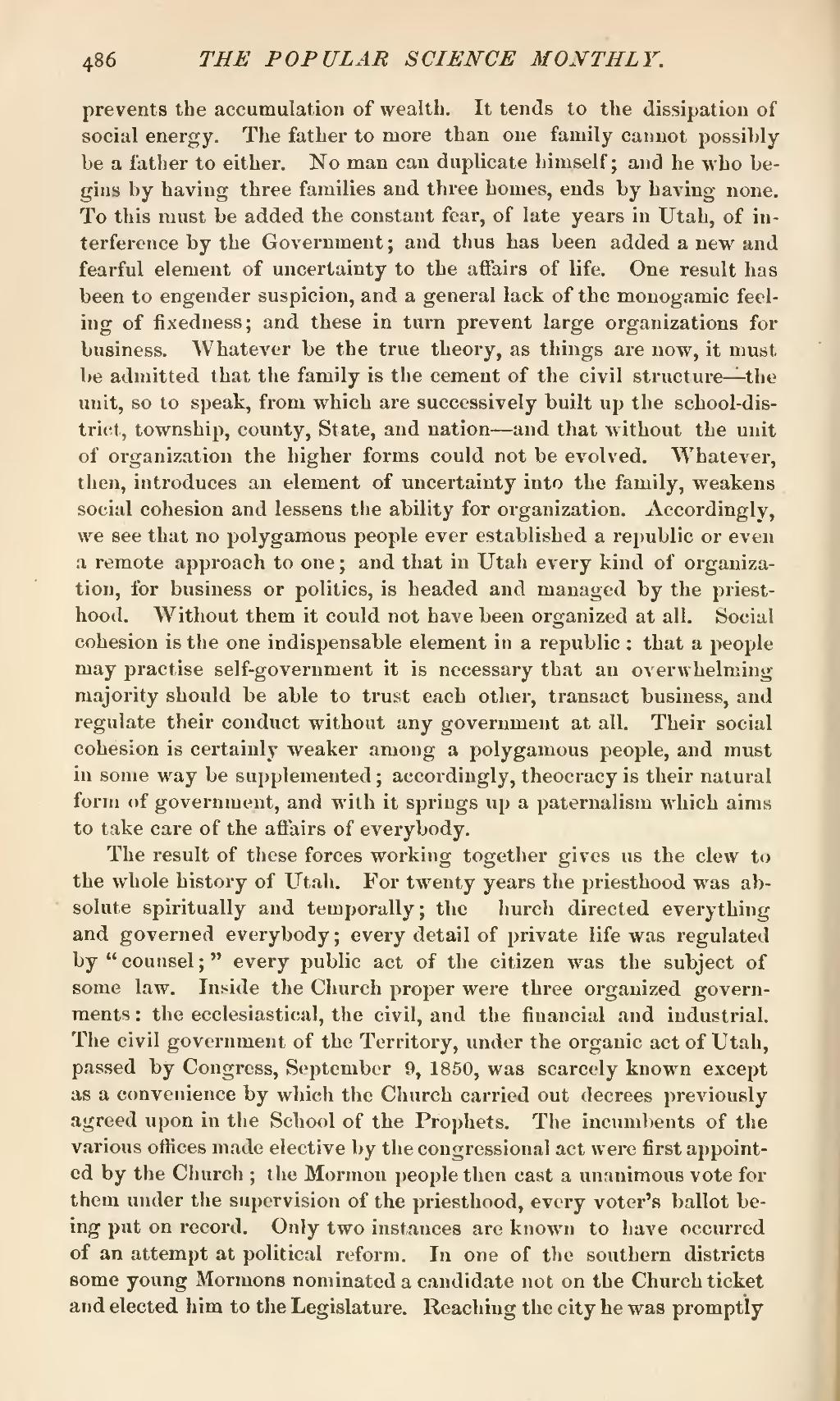prevents the accumulation of wealth. It tends to the dissipation of social energy. The father to more than one family cannot possibly he a father to either. No man can duplicate himself; and he who begins by having three families and three homes, ends by having none. To this must be added the constant fear, of late years in Utah, of interference by the Government; and thus has been added a new and fearful element of uncertainty to the affairs of life. One result has been to engender suspicion, and a general lack of the monogamic feeling of fixedness; and these in turn prevent large organizations for business. Whatever be the true theory, as things are now, it must be admitted that the family is the cement of the civil structure—the unit, so to speak, from which are successively built up the school-district, township, county, State, and nation—and that without the unit of organization the higher forms could not be evolved. Whatever, then, introduces an element of uncertainty into the family, weakens social cohesion and lessens the ability for organization. Accordingly, we see that no polygamous people ever established a republic or even a remote approach to one; and that in Utah every kind of organization, for business or politics, is headed and managed by the priesthood. Without them it could not have been organized at all. Social cohesion is the one indispensable element in a republic: that a people may practise self-government it is necessary that an overwhelming majority should be able to trust each other, transact business, and regulate their conduct without any government at all. Their social cohesion is certainly weaker among a polygamous people, and must in some way be supplemented; accordingly, theocracy is their natural form of government, and with it springs up a paternalism which aims to take care of the affairs of everybody.
The result of these forces working together gives us the clew to the whole history of Utah. For twenty years the priesthood was absolute spiritually and temporally; the hurch directed everything and governed everybody; every detail of private life was regulated by "counsel;" every public act of the citizen was the subject of some law. Inside the Church proper were three organized governments: the ecclesiastical, the civil, and the financial and industrial. The civil government of the Territory, under the organic act of Utah, passed by Congress, September 9, 1850, was scarcely known except as a convenience by which the Church carried out decrees previously agreed upon in the School of the Prophets. The incumbents of the various offices made elective by the congressional act were first appointed by the Church; the Mormon people then cast a unanimous vote for them under the supervision of the priesthood, every voter's ballot being put on record. Only two instances are known to have occurred of an attempt at political reform. In one of the southern districts some young Mormons nominated a candidate not on the Church ticket and elected him to the Legislature. Reaching the city he was promptly

